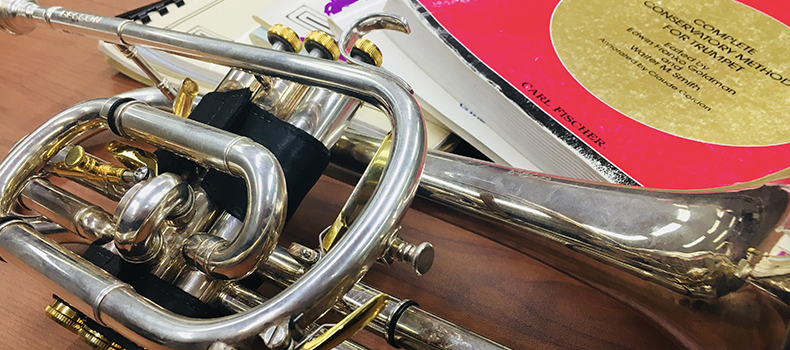INTRODUCTION
Practicing can be one of the hardest things to find time for in today’s world. We get so busy with day-to-day stuff that we often push this activity aside or just simply don’t do it all together. But it can also be one of the best and most rewarding things in our life when we set a certain amount of time aside and accomplish our goal of getting better at our chosen instrument. Let’s not forget that this is also an act of worship. When we practice, we are giving our gifts back to God and investing in our future as a music minister. The Bible says, “Whatever you do, work heartily (to a great degree), as for the Lord and not for men, knowing that from the Lord you will receive the inheritance as your reward. You are serving the Lord Jesus Christ.” – Colossians 3:23-24
Below are a few pointers that scratch the surface on how you can make the most of your practice time.
GOALS
-Make a goal for yourself / Have an idea of what you want to accomplish
-Range, tonguing, melody playing, sight reading etc…
-Work on the weak points of your playing, but remember that practicing should be like a well balanced meal
-Don’t expect results in 1 day, focus on getting better over time
PERSEVERANCE / CONSISTENCY
-Don’t let frustration get the better of you (easier said than done…)
-Practicing everyday is important – one missed day is a big set back. 15 minutes a day is better than 1 hour, 1 day a week.
-It’s ok to use a practice mute sometimes, but this can’t be all you do, especially leading up to a concert. I recommend the Bremner Ssshmute – https://bremnermusic.co.nz/.
WARM-UP ROUTINE
-On a typical day, your warm-up routine should be 10 – 15 minutes
-Try and have a consistent warm-up routine – don’t just play random notes
-I like to start my warm up with some Mouthpiece buzzing
-Your routine should focus on:
-Working the embouchure in slowly and methodically (no overlap of lips)
-Air flow – inhale / exhale
-Producing / Making a good sound
-Long tones
-Articulations
-Lip flexibilities
FUNDAMENTALS TO PRACTICE
-MELODY PLAYING – Get the 1st part tune book and play nice lyrical melodies – make it sound pretty.
-PHRASING – whether you are playing a big solo, or a short melody, always be mindful of the phrasing. Does that breath that I took disrupt the words? (breathing in the middle of a word) If you don’t know the words, look them up…
-Always be sure to make the music go somewhere – don’t let notes become “flatlined”. -Vibrato can help with this, but don’t let vibrato become a crutch…
-The use of slight dynamic changes helps shape the phrase
–SCALES -Slurred, tongued, combination of both
-chromatic, major, minor, whole tone etc…
–ARPEGGIOS -Slurred, tongued, combination of both
–TONGUING – triple, double, single (on “k” tongue as well), different tonguing patterns
–RHYTHM – Use a metronome, instill in yourself a sense of tempo
–SIGHT READING – Read some new music everyday – this is also a skill that won’t get better without practice
–DYNAMICS – Don’t play the same volume, be conscious of extending your soft and loud dynamics
–RANGE -Work on your low and high range – Don’t hurt yourself by trying to play really high too soon
PRACTICE ETUDES / EXERCISES
A FEW TRUMPET / CORNET METHOD BOOKS TO HAVE:
–James Stamp – Warm-ups & Studies
–(Beginners) Bruce Pearson – Standard of Excellence
–(Beginners) A.F. Robinson – Rubank Elementary Method
–Herbert L. Clarke – Technical Studies for Cornet
–Verne Reynolds – 48 etudes for trumpet
–Allen Vizutti – Trumpet method
–Marcel Bitsch – 20 etudes for trumpet
PRACTICE SOLO WORK
I personally like to set a goal for myself to have solos memorized. I find it connects you to the audience, as well as to the solo itself, and gives you more flexibility for musicianship.
-Practice solos standing up
-Memorization
-Play with recordings
-Practice without the music once you are somewhat familiar with the solo you are preparing
-Practice in sections (increase the length of the section once you feel confident you have it down)
-Finally, run through solo – Can you make it all the way to the end? Do you have something left? What were the most difficult sections for stamina and memorization?
(Don’t just practice the sections you can play..…)
REHEARSAL AND CONCERT PREPARATION
-Don’t show up to rehearsal unprepared (don’t embarrass yourself. If you are showing up to rehearsal not able to play “that part”, go practice it. Be respectful to your fellow players and the conductor. You shouldn’t be learning the music in rehearsal.)
-It is okay to play along with band recordings
TAKE CARE OF YOUR LIP
-Don’t be afraid to stop and come back – It isn’t going to do you any favors to keep “bashing” away at it…
-Don’t cram a three hour practice session in the night before a concert. If you need to familiarize yourself with a piece of music, just study it – look at the tempos, key signatures, any rhythms that are hard-to-read / out of the ordinary, road map etc..
GETTING OVER NERVES
-Right mindset, don’t overthink / overwork (easier said than done)
-Figure out your problem – Dry mouth? The “shakes”?
-Try and simulate the nerves you experience in a concert (run up and down the stairs, jump up and down, push ups – then play right after.)
-When I was younger I used to get dry mouth sometimes in performance. I started to chew a piece of gum and it helped keep my mouth wet. Over time it trained my mouth to not get dry, so now I don’t have to chew gum. (Note: If you’re going to chew gum, try not to smack it or chew with your mouth open!)
-When I play a solo, I sometimes look at something at the back of the hall to keep my focus.
-Think about the words
-Keep the same standard in your practice that you would want in performance – Nerves happen because we are expecting a higher level of performance in concert than we did in our practice sessions
PROPER EQUIPMENT
-Find a good mouthpiece – find a good balance for what makes it easier to play vs. what gets the best sound
-Good quality instrument
-Make sure your instrument / mouthpiece is cleaned regularly – is the lead pipe clogged with “gunk”?
LISTEN TO GREAT PLAYERS
-Find some great players you want to sound like, and then make it your own
RECORD YOURSELF
-Get your phone and record yourself playing. Be critical of yourself and fix the issues you hear in your own playing. Listen as if it is someone else playing
PHYSICAL NEEDS – DIET / SLEEP
-Look after yourself – eat healthy
-Consistent sleep pattern – Don’t oversleep / get enough sleep (getting too much sleep can cause your lip to get puffy. A good balance I think is 8 hours)
-Figure out your “pre-concert” routine / meal – do certain foods affect your performance level?? (i.e. greasy / salty foods)
CONCLUSION
All of this is hard work and takes time out of our day. But think of how good you will feel if you have a little discipline every day and put time in towards getting better… You need to have a little bit of determination, work ethic, and perseverance…you also need to be smart. If you are going to put the time in, don’t waste it. Follow these guidelines and make your own practice routine. Evaluate yourself and be honest. Also, don’t be afraid to seek out some help.
If you have any questions, feel free to reach out to me at [email protected] or add me as a friend on facebook. Let’s set some facetime / skype lessons up!
God Bless you.

